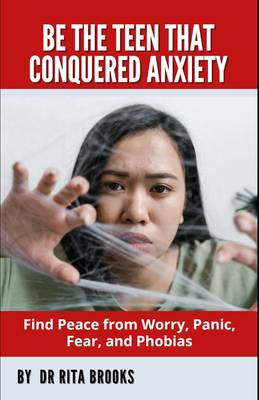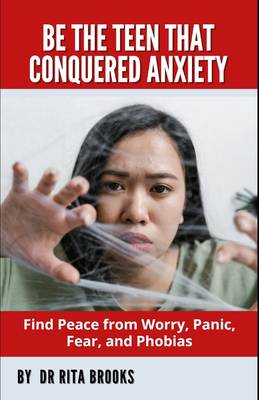
- Afhalen na 1 uur in een winkel met voorraad
- Gratis thuislevering in België vanaf € 30
- Ruim aanbod met 7 miljoen producten
- Afhalen na 1 uur in een winkel met voorraad
- Gratis thuislevering in België vanaf € 30
- Ruim aanbod met 7 miljoen producten
Be The Teen That Conquered Anxiety
Find Peace from Worry, Panic, Fear, and Phobias
Rita BrooksOmschrijving
While anxiety, like depression, is often thought of as an "adult" problem, teens and young adults may worry about everything from school, fitting in with peers, getting along with family members, or their own personal shortcomings. Anxiety disorders affect 25.1% of children between 13 and 18 years old and 19% of adults. If you don't struggle with anxiety, someone you know does. But anxiety in teens and young adults is a mental health issue that often goes undiagnosed or unnoticed. How do you know if feelings of anxiety come from normal everyday anxiety or an anxiety disorder? These signs of anxiety in young adults and teenagers will indicate if your child needs professional help.
Everyone feels anxious at times. Anxiety can surface when you face a challenge, when the pressure's on to do well, or when you've got a worry on your mind. Anxiety turns on your body's stress response (also called fight or flight). This instant surge of stress hormones is a survival response. It prepares you to react quickly and protect yourself if you need to. If you're scared or not sure you're safe, anxiety prompts you to be cautious.
But many people feel anxious in situations that are stressful to them but aren't dangerous. For example, they may feel anxious about taking tests, meeting new people, or speaking in class. If you feel anxious in situations like these, you're not alone. But it's best to learn how to cope. Otherwise, anxiety can hold you back or cause you to avoid things you'd like to do. Instead of avoiding things that prompt anxiety, it's better to face them. You might be surprised by what you can do.
Specificaties
Betrokkenen
- Auteur(s):
- Uitgeverij:
Inhoud
- Aantal bladzijden:
- 136
- Taal:
- Engels
Eigenschappen
- Productcode (EAN):
- 9798357706744
- Verschijningsdatum:
- 12/10/2022
- Uitvoering:
- Paperback
- Formaat:
- Trade paperback (VS)
- Afmetingen:
- 140 mm x 216 mm
- Gewicht:
- 163 g

Alleen bij Standaard Boekhandel
Beoordelingen
We publiceren alleen reviews die voldoen aan de voorwaarden voor reviews. Bekijk onze voorwaarden voor reviews.











